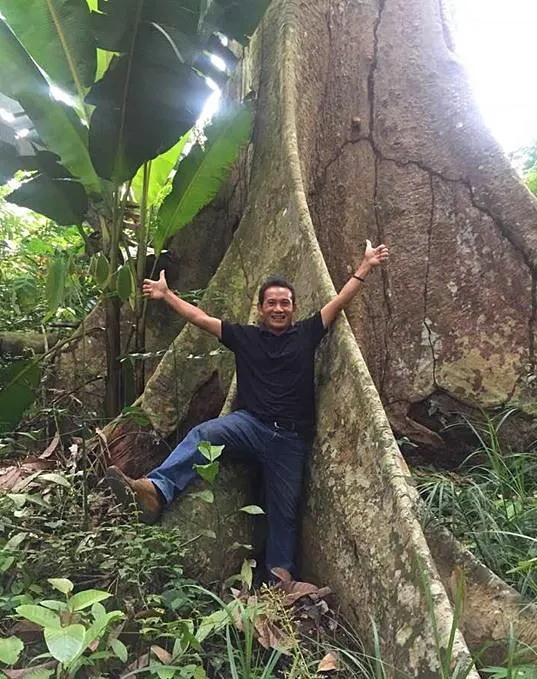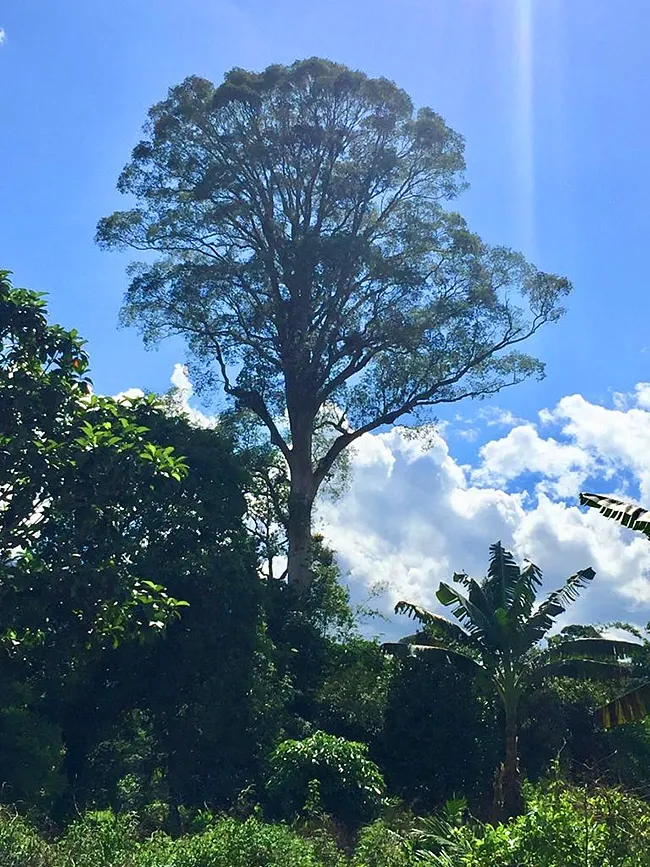Koompassia Excelsa: Natural Beekeeping for The Dayak People
This giant tree is now increasingly rare. Around my village, currently, there are only 5 trees left. It's the same as 40 years ago, when I left. The magnitude. Also the height.
In the tapang tree, as we call it, many
bees have nested before. However, now it is increasingly rare. Only I saw, on
the way to Sekadau, several tapang trees full of beehives.
I photographed it. This is the appearance
of the tapang tree in my village area. Jangkang District, Sanggau Regency, West
Kalimantan.
Until now, people collect honey and bee
eggs from the tapang tree by climbing. Cooking the tapang tree first, with a
ladder peg. Then climb up until you reach the tapang branch, where the bees
nest. With a special spell reading, at night. So while hitting a bundle of
straw that was set on fire, the bees would descend, crawl, follow the sparks.
When the beehives, in the form of wax, are left by the bees, then they are
sliced, and put in a container/bucket. A beehive, if it is central (filled),
can reach 10 liters of honey.
However, to be able to harvest honey -and
very delicious bee eggs for side dishes- in the tapang tree, extraordinary
skills are required to be able to do this. For this reason, harvesters must be
careful. Because the surface of the tapang stems and branches is very slippery.
Many stories of bee harvesters in this tapang tree fell, and died instantly,
their bodies shattered into pieces.
Each ethnic group has its own tacit knowledge . Which do not have to be the same, depending on the situation conditions. We, the Dayak people, have natural beekeeping. What is certain can not be imitated by the city.
After all, far more honey harvesters and
bee eggs survived. They have besides instinct, namely natural intelligence ,
also skills. Nature has educated and taught them. In such a way, that this
natural intelligence seems to be attached to the Dayak people.
No wonder. If the honey is natural, the
bees in my village are at a premium price. A bottle of IDR 100,000. However,
compared to prices in the city, that price is classified as "cheap".
The tree which in science is called
Koompassia excelsa only grows in Southeast Asia. Apart from Indonesia, it also
grows in Thailand, Malaysia and the Philippines.
It's just that, now tapang trees are
increasingly rare. If it is not cared for, and planted immediately, then 50
years to go.
And surely this writing will be very useful
because it contains historical value.








